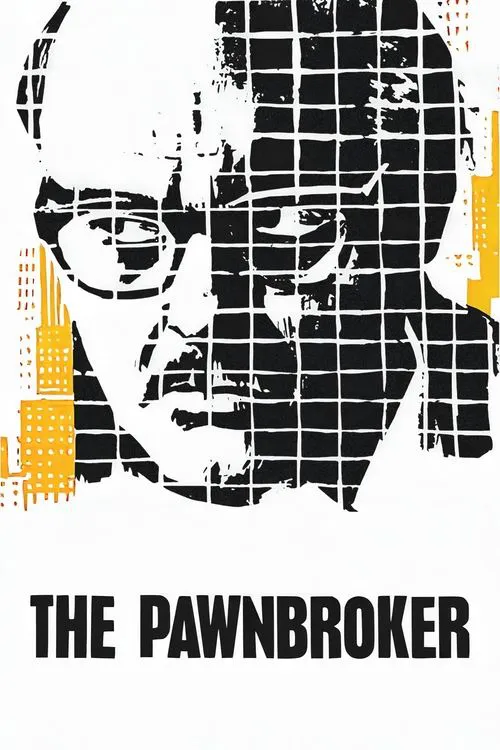The Pawnbroker

Plot
The Pawnbroker, directed by Sidney Lumet in 1964, is a poignant drama that weaves together the complexities of human nature, redemption, and the lasting scars of trauma. Based on the novel of the same name by Edward Lewis Wallant, the film tells the story of Sol Nazerman, a Jewish pawnbroker who operates a small shop in a predominantly Latino neighborhood in New York City. Sol, played by Rod Steiger, is a man consumed by his own pain and anger. A survivor of the Nazi concentration camps during World War II, Sol has lost his family and his dignity. He is forced to live in the shadows, ashamed of his past and fearful of what others might think of him. His only solace is his job as a pawnbroker, where he can observe the world around him without being a part of it. Sol's customers are primarily poor Latino immigrants who come to his shop seeking to pawn their belongings to make ends meet. Sol's demeanor is cold and detached, almost mechanical. He sees these people as mere objects, nothing more than commodities to be bought and sold. His only interaction with the outside world is his brief exchange with his customers, where he takes their items and gives them money, all the while maintaining a stoic expression. Sol's existence is one of isolation and loneliness. He lives in a modest apartment above his pawn shop, surrounded by mementos from his past life. His furniture and decorations serve as a reminder of what he has lost, but they also represent a sense of continuity and connection to his family. However, despite these reminders, Sol is a man adrift, disconnected from the world around him. As the story unfolds, we see glimpses of Sol's past through a series of flashbacks. We learn that he was a family man, a loving husband and father who was torn from his loved ones by the Nazi regime. His experiences in the camps were brutal, with Sol being subjected to forced labor, starvation, and inhumane treatment. His memories are etched in his mind like scars, and he is haunted by them. One day, Sol meets Valdez, a young Latino man who comes to his shop to pawn a gold watch. Valdez is unlike any of Sol's other customers – he is charming and respectful, and he seems to actually care about Sol. Over the course of several visits, Sol begins to form a bond with Valdez, who represents for him a glimmer of hope and redemption. However, Sol's fragile psyche is ultimately his downfall. He sees the world through a distorted lens, and his experiences in the camps have left him unable to form genuine human connections. He becomes increasingly paranoid, lashing out at his customers and Valdez in particular. Sol's anger and resentment boil over, and he is unable to contain them. In a tragic turn of events, Sol's behavior ultimately leads to Valdez's death. In a fit of rage, Sol shoots and kills his young friend, the same man who had brought light and hope into his life. The incident leaves Sol reeling, forced to confront the consequences of his actions. He realizes too late the true nature of his behavior, which has been a tragic echo of the cruelty and violence he experienced during the war. The film ends with Sol's emotional collapse, as he is left to grapple with the weight of his guilt and shame. His actions, though unintended, have led to tragedy, and he is left to face the devastating consequences. The Pawnbroker is a powerful exploration of the human psyche, a haunting reminder of the lasting impact of trauma and the fragility of the human spirit.
Reviews
Recommendations




